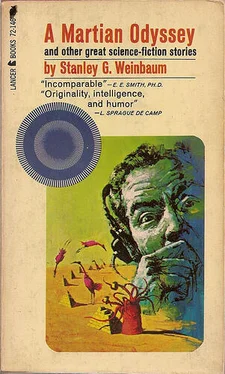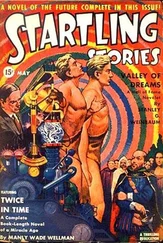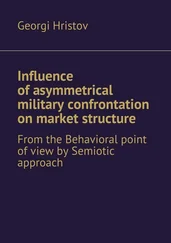Stanley Weinbaum - The Point of View
Здесь есть возможность читать онлайн «Stanley Weinbaum - The Point of View» весь текст электронной книги совершенно бесплатно (целиком полную версию без сокращений). В некоторых случаях можно слушать аудио, скачать через торрент в формате fb2 и присутствует краткое содержание. Жанр: Фантастика и фэнтези, на английском языке. Описание произведения, (предисловие) а так же отзывы посетителей доступны на портале библиотеки ЛибКат.
- Название:The Point of View
- Автор:
- Жанр:
- Год:неизвестен
- ISBN:нет данных
- Рейтинг книги:4 / 5. Голосов: 1
-
Избранное:Добавить в избранное
- Отзывы:
-
Ваша оценка:
- 80
- 1
- 2
- 3
- 4
- 5
The Point of View: краткое содержание, описание и аннотация
Предлагаем к чтению аннотацию, описание, краткое содержание или предисловие (зависит от того, что написал сам автор книги «The Point of View»). Если вы не нашли необходимую информацию о книге — напишите в комментариях, мы постараемся отыскать её.
The Point of View — читать онлайн бесплатно полную книгу (весь текст) целиком
Ниже представлен текст книги, разбитый по страницам. Система сохранения места последней прочитанной страницы, позволяет с удобством читать онлайн бесплатно книгу «The Point of View», без необходимости каждый раз заново искать на чём Вы остановились. Поставьте закладку, и сможете в любой момент перейти на страницу, на которой закончили чтение.
Интервал:
Закладка:
And shapes! It took me several minutes to identify the weird, angular, twisted, distorted appearance in the center of the room as the plain laboratory table. The room itself, aside from its queer form, looked smaller, perhaps because van Manderpootz is somewhat larger than I.
But by far the strangest part of his point of view had nothing to do with the outlook upon the physical world, but with the more fundamental elements — with his attitudes . Most of his thoughts, on that first occasion, were beyond me, because I had not yet learned to interpret the personal symbolism in which he thought. But I did understand his attitudes. There was Carter, for instance, toiling away out in the large laboratory; I saw at once what a plodding, unintelligent drudge he seemed to van Manderpootz. And there was Miss Fitch; I confess that she had always seemed unattractive to me, but my impression of her was Venus herself beside that of the professor! She hardly seemed human to him and I am sure that he never thought of her as a woman, but merely as a piece of convenient but unimportant laboratory equipment.
At this point I caught a glimpse of myself through the eyes of van Manderpootz. Ouch! Perhaps I'm not a genius, but I'm dead certain that I'm not the grinning ape I appeared to be in his eyes. And perhaps I'm not exactly the handsomest man in the world either, but if I thought I looked like that — ! And then, to cap the climax, I apprehended van Manderpootz's conception of himself!
"That's enough!" I yelled. "I won't stay around here just to be insulted. I'm through!"
I tore the attitudinizor from my head and tossed it to the table, feeling suddenly a little foolish at the sight of the grin on the face of the professor.
"That is hardly the spirit which has led science to its great achievements, Dixon," he observed amiably. "Suppose you describe the nature of the insults, and if possible, something about the workings of the attitudinizor as well. After all, that is what you were supposed to be observing."
I flushed, grumbled a little, and complied. Van Manderpootz listened with great interest to my description of the difference in our physical worlds, especially the variations in our perceptions of form and color.
"What a field for an artist!" he ejaculated at last. "Unfortunately, it is a field that must remain forever untapped, because even though an artist examined a thousand viewpoints and learned innumerable new colors, his pigments would continue to impress his audience with the same old colors each of them had always known." He sighed thoughtfully, and then proceeded. "However, the device is apparently quite safe to use. I shall therefore try it briefly, bringing to the investigation a calm, scientific mind which refuses to be troubled by the trifles that seem to bother you."
He donned the attitudinizor, and I must confess that he stood the shock of the first trial somewhat better than I did. After a surprised "Oof!" he settled down to a complacent analysis of my point of view, while I sat somewhat self-consciously under his calm appraisal. Calm, that is, for about three minutes.
Suddenly he leaped to his feet, tearing the device from a face whose normal ruddiness had deepened to a choleric angry color. "Get out!" he roared. "So that's the way van Manderpootz looks to you! Moron! Idiot! Imbecile! Get out!"
* * * * *
It was a week or ten days later that I happened to be passing the University on my way from somewhere to somewhere else, and I fell to wondering whether the professor had yet forgiven me. There was a light in the window of his laboratory over in the Physics Building, so I dropped in, making my way past the desk where Carter labored, and the corner where Miss Fitch sat in dull primness at her endless task of transcribing lecture notes.
Van Manderpootz greeted me cordially enough, but with a curious assumption of melancholy in his manner. "Ah, Dixon," he began, "I am glad to see you. Since our last meeting, I have learned much of the stupidity of the world, and it appears to me now that you are actually one of the more intelligent contemporary minds."
This from van Manderpootz! "Why — thank you," I said.
"It is true. For some days I have sat at the window overlooking the street there, and have observed the viewpoints of the passers-by. Would you believe" — his voice lowered — "would you believe that only seven and four-tenths percent are even aware of the existence of van Manderpootz? And doubtless many of the few that are, come from among the students in the neighborhood. I knew that the average level of intelligence was low, but it had not occurred to me that it was as low as that."
"After all," I said consolingly, "you must remember that the achievements of van Manderpootz are such as to attract the attention of the intelligent few rather than of the many."
"A very silly paradox!" he snapped. "On the basis of that theory, since the higher one goes in the scale of intelligence, the fewer individuals one finds, the greatest achievement of all is one that nobody has heard of. By that test you would be greater than van Manderpootz, an obvious reductio ad absurdum ."
He glared his reproof that I should even have thought of the point, then something in the outer laboratory caught his ever-observant eye.
"Carter!" he roared. "Is that a synobasical interphasometer in the positronic flow? Fool! What sort of measurements do you expect to make when your measuring instrument itself is part of the experiment? Take it out and start over!"
He rushed away toward the unfortunate technician. I settled idly back in my chair and stared about the small laboratory, whose walls had seen so many marvels. The latest, the attitudinizor, lay carelessly on the table, dropped there by the professor after his analysis of the mass viewpoint of the pedestrians in the street below.
I picked up the device and fell to examining its construction. Of course this was utterly beyond me, for no ordinary engineer can hope to grasp the intricacies of a van Manderpootz concept. So, after a puzzled but admiring survey of its infinitely delicate wires and grids and lenses, I made the obvious move. I put it on.
My first thought was the street, but since the evening was well along, the walk below the window was deserted. Back in my chair again, I sat musing idly when a faint sound that was not the rumbling of the professor's voice attracted my attention. I identified it shortly as the buzzing of a heavy fly, butting its head stupidly against the pane of glass that separated the small laboratory from the large room beyond. I wondered casually what the viewpoint of a fly was like, and ended by flashing the light on the creature.
For some moments I saw nothing other than I had been seeing right along from my own personal point of view, because, as van Manderpootz explained later, the psychons from the miserable brain of a fly are too few to produce any but the vaguest of impressions. But gradually I became aware of a picture, a queer and indescribable scene.
Flies are color-blind. That was my first impression, for the world was a dull panorama of greys and whites and blacks. Flies are extremely nearsighted; when I had finally identified the scene as the interior of the familiar room, I discovered that it seemed enormous to the insect, whose vision did not extend more than six feet, though it did take in almost a complete sphere, so that the creature could see practically in all directions at once. But perhaps the most astonishing thing, though I did not think of it until later, was that the compound eye of the insect, did not convey to it the impression of a vast number of separate pictures, such as the eye produces when a microphotograph is taken through it. The fly sees one picture just as we do; in the same way as our brain rights the upside-down image cast on our retina, the fly's brain reduces the compound image to one. And beyond these impressions were a wild hodge-podge of smell-sensations, and a strange desire to burst through the invisible glass barrier into the brighter light beyond. But I had no time to analyze these sensations, for suddenly there was a flash of something infinitely clearer than the dim cerebrations of a fly.
Читать дальшеИнтервал:
Закладка:
Похожие книги на «The Point of View»
Представляем Вашему вниманию похожие книги на «The Point of View» списком для выбора. Мы отобрали схожую по названию и смыслу литературу в надежде предоставить читателям больше вариантов отыскать новые, интересные, ещё непрочитанные произведения.
Обсуждение, отзывы о книге «The Point of View» и просто собственные мнения читателей. Оставьте ваши комментарии, напишите, что Вы думаете о произведении, его смысле или главных героях. Укажите что конкретно понравилось, а что нет, и почему Вы так считаете.












